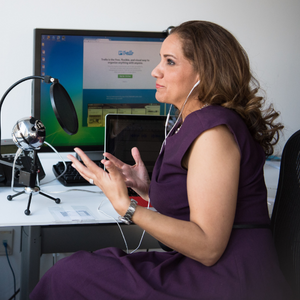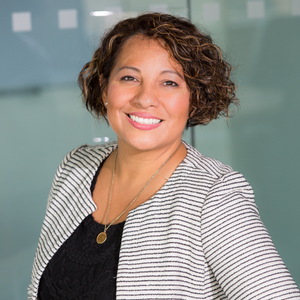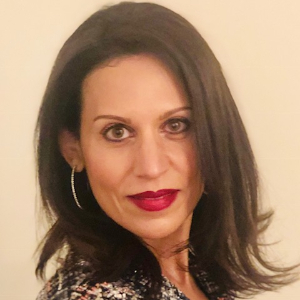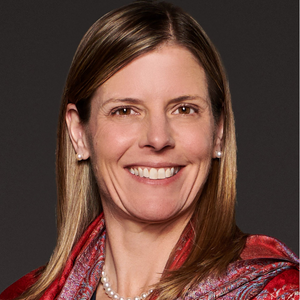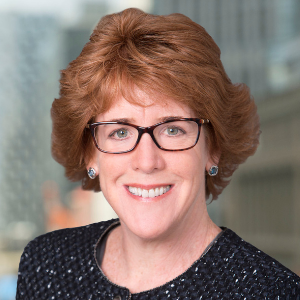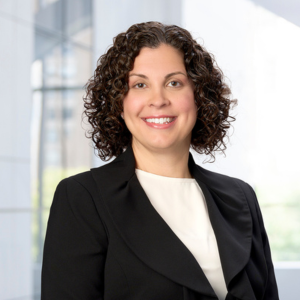Fabiola Gutierrez-Orozco: R&D Director, Global Nutrition Science, Reckitt
 “Learning is my passion. The roles I have held in industry have allowed me to do my job and learn at the same time,” says Fabiola Gutierrez-Orozco. “And it is not the same thing every day.”
“Learning is my passion. The roles I have held in industry have allowed me to do my job and learn at the same time,” says Fabiola Gutierrez-Orozco. “And it is not the same thing every day.”
Gutierrez-Orozco speaks candidly about the challenges she has overcome since leaving home at 13 to pursue her education, and the inner growth journey she is pursuing while stepping into a senior global leadership role in STEM. Coming from San Luis Potosi in Central Mexico to the U.S. to obtain a Master’s degree in Human Nutrition, Gutierrez-Orozco was drawn to nutrition science, gut health and the microbiome. One year before obtaining her PhD, she realized she didn’t want a career in academia. Upon graduation, she joined the business world, working in pediatric nutrition, which allowed her to stretch her scientific research foundation into applied nutrition and allowed her to continue to constantly learn.
Perspective and resilience have carried her to where she is today: “Earning my Master’s and Doctoral degrees wasn’t an easy road – coming from Mexico, moving to the U.S., being the first one in many generations in my family to earn a college degree, and then go onto graduate school,” she notes.
“It has been both resilience and the desire to do better not just for myself, but for my family. Initially, the reason I came to the U.S. was to improve my education so I could access better jobs and provide financial help to my family,” she shares.
Indeed, so many factors at a cultural level in Gutierrez-Orozco’s life have challenged her to create mental and emotional resilience. At 13 years old, she had to leave her parent’s house and her hometown in rural Mexico and rent an apartment in a nearby city to be able to attend high school. She then moved farther away for college before moving countries and coming to the U.S. for her Master and PhD degrees.
Cultural Challenges Beyond Her Peers
Incredibly, Gutierrez-Orozco took on a STEM graduate education whilst learning to express herself in English. “I didn’t speak English when I first came here in 2006. I had all the grammar in my head. I could write and read and understand what people said. But, while in class, if the professor asked me a question, I had the answer in my head. I just couldn’t say it.”
She also had to unlearn the need to hide that she was gay. “I had a relationship in Mexico that was in the closet because my family was raised strictly Catholic. So coming here, and trying to find my way out of that was another big change for me.”
While in grad school, Gutierrez-Orozco also perceived that she was not as primed for success as her student peers. “Honestly, growing up in public schools in Mexico, I don’t think I received the best education compared to other people in the same graduate program as me. I always felt a little behind and tried to work harder to catch up and do well.”
That same feeling followed her to the workplace, being self-conscious about other’s projections around her accent or when she comes across unfamiliar words at first exposure – “I can always find the meaning through context, but I often feel like I have to be paying extra attention to keep up.” She credits her wife and daughters, English native speakers, for being fluent now.
The Mindset Shift of Leaping To a Big Leadership Role
In April of 2022, Gutierrez-Orozco was promoted to a senior leadership role, managing a 24-person team of scientists, many with PhDs in chemistry, biochemistry or nutrition. While she’s held managerial roles since 2018, Gutierrez-Orozco has focused her growth on transitioning her mindset from that of an individual contributor to that of a global team leader.
“In my previous managerial roles, I still had at least 50% of an individual contributor role. However, in my current role, I don’t know everything anymore. I don’t have the time to read all the science that I want to read,” she says. “So I’m learning to be okay with not knowing everything and finishing my work day without seeing tangible results because so much of what I have to do now is strategic work. Losing that sense of tangible accomplishment has been a struggle.”
She’s also learned to separate her work-style preferences from what is needed to inspire a team: “I have never liked being the center of attention or the object of recognition,” she admits. “I’m really trying to remind myself that just because I don’t feel comfortable being recognized, doesn’t mean my team members don’t need, and obviously deserve, that recognition.”
Confronting Imposter Syndrome with Executive Coaching
Experiencing imposter syndrome led her to seek out help in confidence-
building and owning her worth – despite cultural messaging – through executive coaching.
“Working with Nicki Gilmour on my leadership journey has really helped me reflect on how these thoughts and the belief that ‘I am not enough’ are holding me back from growing, not just in my role but as a person and leader,” she says. “Coaching has also helped me reflect on ways in which I can leverage my background to help others that might have a similar experience. Lastly, coaching has given me the confidence and courage to move forward on my growth journey as a leader. I know I am not going to get it right at first, or all the time, but I am willing to try and learn.”
To dial down the voices of self-doubt, Gutierrez-Orozco also reminds herself why she took this role in the first place: to provide support and guidance at a time when the entire team was experiencing a significant lack of stability and optimism because her company had just gone through a wave of layoffs that impacted many people in her department. Therefore, when she begins to doubt, she can focus on the good she is doing serving her team. She also reminds herself that her work is not about perfection, but is rather about showing up every day and being there for others.
Modeling Authenticity and Vulnerability As a Leader
One way Gutierrez-Orozco has leveraged her background is by being open at work about who she is, where she grew up, and her life with her wife and family. She also shares when she struggles with anxiety and depression. The impact of her authenticity and her vulnerability has given her team members permission to be real, too, and it has strengthened the group overall, allowing them to work closely together more effectively, and therefore deliver on the company objectives.
“Inside my team, I’ve had an impact with people being willing to share what they might be struggling with and being able to express the need for support. Some have shared that it’s been such a change in the past year”, she says. “In the past, if someone was struggling and brought it up, especially a female, management would have thought that person was just being weak or whining. Or if a woman spoke up and shared her mind in a meeting – and this happened to me, too – she may have been portrayed as too emotional. However, when a man did it, it wouldn’t be looked upon that way.”
She continues: “So I feel there’s been more openness to really be who you are at the workplace. And I believe that when people can truly be themselves at work, they are more engaged, satisfied, and effective,” she says, “So that’s an impact I feel I have had in my team.”
Sharing Your Voice and Not Self-Sacrificing
Gutierrez-Orozco is grateful for the mentorship of a previous manager who brought her to Reckitt through a postdoctoral internship, instilled faith in her abilities and encouraged her to share the value of her voice in the room.
“I will never forget what he told me: ‘People are wanting to hear from you. You have so much to share, so make sure you’re speaking up,’” she recalls. “I often remember that phrase and though I don’t like to be the center of attention, I remind myself I should just speak up, anyway.”
Reflecting on her past, Gutierrez-Orozco would challenge her younger self on the notion that in order to advance in her career, she had to sacrifice important parts of her life, like spending four years away from her wife and daughters and driving ten hours in a weekly commute between cities. Now, she realizes that, even then, she had a choice. It’s about retaining perspective on what’s most important.
“In my team, we’re all scientists and we want to get things done and we want them to be perfect, so we give our best and go above and beyond,” she says. “But I always like to remind my team that the job is important, but so are your health and family. While there are times when you may have to work extra hours to meet your objectives, doing so is never sustainable in the long run.”
You Have More Options Than You Think
Gutierrez-Orozco has learned over the years that part of her success also results from choosing and investing time in hobbies that provide stimulation and relaxation. She lives with a family of runners, and she prioritizes time that allows her to participate in that activity with her wife and daughters. In the last two years, she’s also begun woodworking, and she’s already made a few pieces of furniture.
This same mentality of being aware and having choice applies to career paths. Her daughter Toby is graduating from high school this summer and plans to pursue a biochemistry degree in college, and her daughter Sasha will graduate from college next year with a degree in dental hygiene. “It is great to see their love for science. The beauty of science is that there are so many routes you can go,” she says.
Gutierrez-Orozco emphasizes to her own daughters, and to any young women interested in science, “that you don’t have to choose the whole PhD route. If you begin in science, there are so many options you will have on how to apply that, so don’t feel like you must have everything figured out from the start.”
As she’s learned, there is always more than one choice in any situation – if you only free yourself to make it.
By Aimee Hansen

